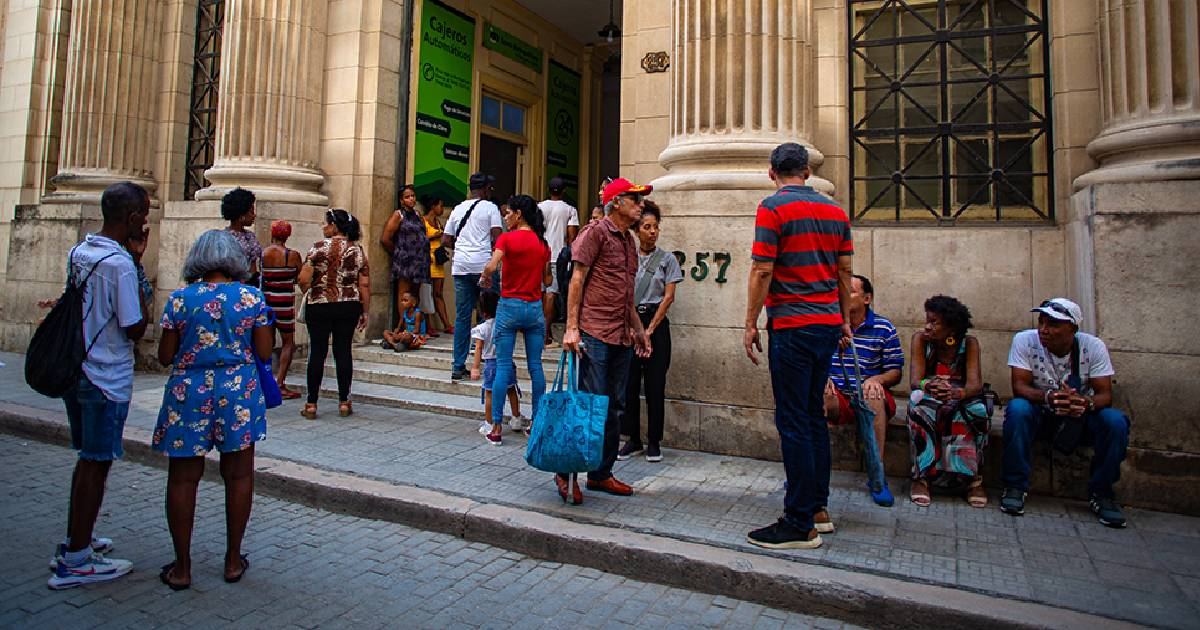Pedro Monreal, a Cuban economist and academic, has offered a sharp critique of Cuba's economic performance in 2024, casting doubt on the government's claims of economic revitalization and macroeconomic stability. In a series of "notes" shared on his Twitter account, Monreal argued that despite the regime's rhetoric, the country is grappling with severe stagflation—a troubling mix of economic stagnation combined with high inflation, further deteriorating the living standards of households.
Monreal contended that the government's narrative is misleading, as it is impossible to speak of an "economic revival" when the economy has contracted in four of the last six years. He highlighted that the GDP, adjusted for inflation, was lower in 2024 than in 2019, exacerbated by the impact of a dysfunctional power grid.
Furthermore, the budget deficit remained between 10% and 12% of the GDP, marking one of the highest rates globally. This deficit was primarily financed through monetary issuance, worsening the inflationary issues, he explained.
Inflation reached 28% year-on-year in October 2024, while food prices surged by 33.3%, further eroding the purchasing power of the population. Monreal also pointed out that the loss of competitiveness in the tourism sector, deemed the "engine" of the Cuban economy, has not been offset by any other leading activity.
He criticized the official statement regarding the coexistence of "partial dollarization schemes" with the aim to advance towards the de-dollarization of the economy, labeling it a clear contradiction.
Having worked for the Economic Commission for Latin America and the Caribbean (ECLAC), Monreal emphasized the decline in the share of workers' wages in the GDP, which fell from 46.3% in 2020 to 18.8% in 2023. This decline contradicts the government's premise of prioritizing the population's living standards.
On the other hand, the Cuban government has projected a 1% GDP growth for 2025, based on a tourist recovery, increased exports, and improvements in the national power system. However, Monreal considers these forecasts to be unrealistic amid a structural crisis and a lack of significant investment.
Concluding his analysis, the economist urged the regime to critically review the measures adopted to tackle the prolonged crisis affecting the country. His conclusions are based on the announcements made by the regime on Wednesday before the National Assembly of People's Power, where new measures were approved to address the island's economic crisis, but with solutions that have already proven ineffective in resolving the country's challenges.
Understanding Cuba's Economic Challenges
What is stagflation and how is it affecting Cuba?
Stagflation is a situation where economic stagnation is coupled with high inflation. In Cuba, this has led to a decline in living standards as the economy struggles to grow while prices rise significantly.
Why is the Cuban government's fiscal policy considered problematic?
The Cuban government's fiscal policy is problematic because it maintains a high budget deficit, financed through monetary issuance, which exacerbates inflationary pressures and strains the economy further.
How does the tourism sector impact Cuba's economy?
Tourism is considered the main driver of the Cuban economy. However, a loss of competitiveness in this sector has not been compensated by other industries, impacting overall economic growth.
What are the implications of Cuba's wage decline in GDP?
The decline in the share of wages in GDP suggests that workers are receiving a smaller portion of the economic output, which contradicts government claims of prioritizing citizens' living standards and worsens economic inequality.
